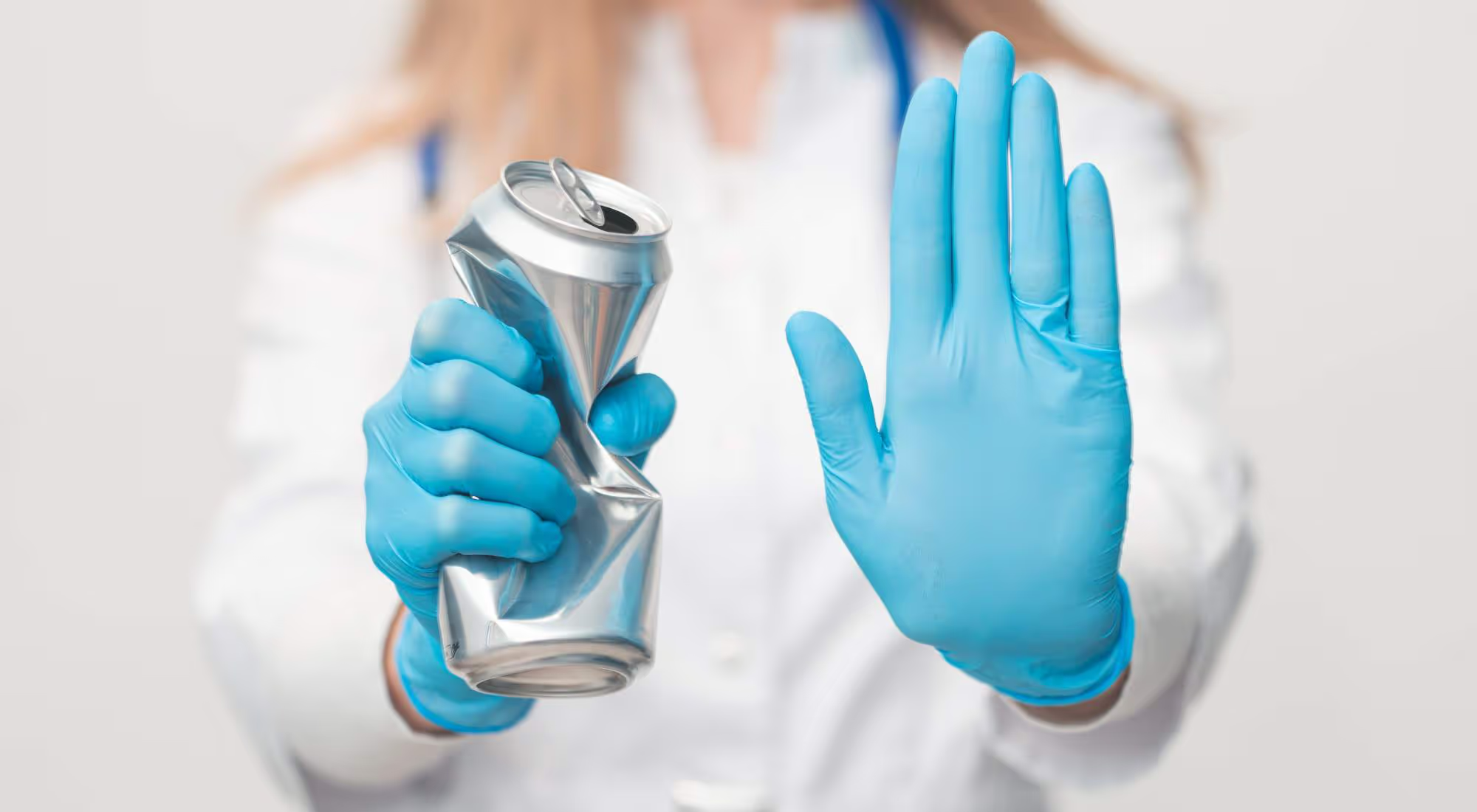Alcohol and Stroke: Understanding How Alcohol Intake Can Affect the Risk of Stroke

Strokes happen to older people, right? Especially those with other health risks?
Can drinking alcohol cause a stroke — despite your age or health concerns?
While moderate drinking is sometimes portrayed as harmless, research tells a more complex story. Whether you're a casual drinker or concerned about a loved one, understanding this potential link could be lifesaving.
This article explores the connection between alcohol use and stroke, ways to manage stroke risk, safe drinking limits to reduce risk, how much is too much, and how Dove Recovery can help.
Table of Contents
- Can Alcohol Cause a Stroke?
- Can Drinking Lead to a Stroke?
- The Link Between Alcohol and Stroke
- 3 Ways To Manage the Risk of Stroke
- Are There Safe Limits To Drinking That Reduce the Risk of Stroke?
- Can Alcohol Withdrawal Cause a Stroke?
- Worried About Stroke Risk From Alcohol? Compassionate Help Is Within Reach With Dove Recovery
Because of the link between alcohol and other health conditions that are associated with strokes, regular drinking or over-consumption can lead to a higher risk of having a stroke.
A stroke, also known as a cerebrovascular event or a brain attack, occurs because of a disruption of blood flow to the brain. This can be due to a blockage (ischemic stroke) or a blood vessel that has burst (hemorrhagic stroke). When this happens, the brain cells do not receive the oxygen and nutrients they need, and they die within minutes.
According to studies done by the Medical University of South Carolina, the more alcohol someone drinks, the greater the risk of both types of stroke. Drinking more than two drinks a day can contribute to other stroke-related conditions like hypertension, atrial fibrillation, and inhibited coagulation.
Strokes can result in severe damage, including:
- Paralysis
- Speech difficulties
- Memory loss
- Other neurological concerns
The symptoms experienced may depend on the type of stroke, but some common symptoms include:
- Numbness on one side of the face
- Arm weakness
- Speech difficulty
- Confusion
- Vision trouble
- Dizziness
- Headache
If you or a loved one is concerned about excessive alcohol consumption and the risk of having a stroke, Dove Recovery can help. We specialize in addiction recovery treatment with compassion and support, offering treatment plans catered to each client’s needs. Get help today by calling or scheduling an assessment.

Yes, research shows drinking large amounts of alcohol can greatly increase your risk of stroke. Medical News Today reported on a study from the University of Lille Nord de France in Lille, France, that suggests that heavy drinkers have a higher risk of having a stroke earlier in life — up to 14 years earlier — than other people.
In their study, researchers found that:
- Regular heavy drinkers had strokes at an average of 60 years old.
- Younger patients who experienced strokes in the deep part of the brain had a higher chance of dying within 24 months than those who did not drink heavily.
- Heavy drinkers also tended to practice other lifestyle habits that contributed to stroke risk, including:
- Smoking
- Blood irregularities
- Falls
- Liver issues
Alcohol overconsumption can increase your risk of stroke because alcohol is linked to a number of other conditions associated with strokes.
The following conditions related to drinking too much and elevated stroke risk include:
- Liver damage – When the liver metabolizes alcohol, it can produce toxic byproducts that can lead to conditions like fatty liver, alcoholic hepatitis, and cirrhosis. Liver damage can also affect the body’s ability to clot blood, which can increase the risk of bleeding in the brain or hemorrhagic stroke.
- Diabetes – Chronic drinking can lead to diabetes by reducing insulin production, promoting insulin resistance, causing dangerous blood sugar fluctuations, and more.
- Atrial fibrillation – Drinking alcohol in excess can trigger an abnormal heartbeat (AFib) through nervous system effects, electrolyte imbalances, and direct impact on heart muscle cells. Atrial fibrillation makes people five times more likely to have a stroke because of the potential for blood clots to dislodge or break up.
- Weight Gain – Alcohol can lead to weight gain due to its high calorie content, ability to impair metabolism, effect on appetite, and contribution to sleep and hormonal disruptions.
- High Blood Pressure – Excessive alcohol consumption can lead to hypertension through stimulation of the sympathetic nervous system, damaging blood vessel walls, and increased weight gain. Half of all strokes are also associated with high blood pressure.
.avif)
Whether you are a regular or heavy drinker or not, there may be other reasons for you to be concerned about your stroke risk, including:
- Your age – The chance of stroke increases with age.
- Family history – If someone in your family had a stroke — especially before 65 — you may be at greater risk.
- Your race – Blacks have a higher risk of death from stroke than white people do.
- Your gender – Women have more strokes than men.
- Incidence of previous stroke, TIAs, or heart attacks – Someone with one or more transient ischemic attacks (TIAs) is ten times more likely to have a stroke than someone who hasn’t.
If you are concerned about any of the risk factors above and you currently drink regularly or too much, consider these three important ways you can help manage your increased risk of having a stroke.
#1: Take Prescribed Medications
If you have been prescribed medication to help with a condition that increases your stroke risk, it’s essential to take your medication as prescribed.
If you are worried about side effects or have questions about your medication, talk to your pharmacist or healthcare provider. Other medications may be more appropriate for you.
It’s important to never stop taking your medication without first consulting with your doctor.
#2: Get Regular Check-Ups
Most people don’t relish going to the doctor, but regular check-ups can be an important part of reducing your risk of stroke.
Because the risk of having a stroke is increased with age, seeing your doctor regularly can help them keep tabs on potential health conditions that may lead to strokes — like high blood pressure and diabetes. Your doctor can help prescribe medications for those conditions and assess how well they are working and make alterations as necessary.
#3: Make Lifestyle Changes
Your healthcare practitioner can also help with making other lifestyle changes that might reduce your risk of having a stroke, like:
- Quitting smoking
- Losing weight
- Getting more exercise
- Eating a healthy diet
- Limiting alcohol consumption

We’ve used terms like “regular drinking” and “ heavy drinking,” but what do those terms really mean? How much drinking is too much, and is there a safe limit to consider in order to reduce the risk of having a stroke?
Regular drinking refers to drinking alcohol four or more days a week, while heavy drinking includes eight or more drinks for women and fifteen or more drinks for men during the week. Binge drinking is also a concern and includes four or more drinks for women and five or more drinks for men during one drinking event.
None of those scenarios is helpful for lowering your risk of having a stroke. Where should you draw the line?
To reduce stroke risk, set upper limits as follows:
- Two units of alcohol for men
- One unit of alcohol for women
Remember, a unit of alcohol is equal to 10 ml of pure alcohol. Because alcohol by volume (ABV) varies depending on the type of alcohol, one drink may not be equal to one unit.
Tips To Reduce Alcohol Consumption
Cutting back on your alcohol consumption can be a challenge. Enlisting a friend for encouragement and support can be helpful, along with following these tips:
- Setting a limit of drinks for an occasion and sticking to it
- Drinking with food
- Drinking slowly
- Drinking water in between alcoholic drinks
- Exchange non-alcoholic drinks for alcoholic choices
- Track your alcohol intake and evaluate consumption regularly
- Choose small glasses to drink from
- Commit to two to four consecutive days without drinking
If you recognize the need to cut back on drinking but are unsure if you can do it on your own, Dove Recovery is poised to help with a variety of treatment programs to meet your specific needs.
Alcohol withdrawal can place a heavy burden on the body, and that effect can be exacerbated with those who have had a stroke. A 2019 study examining the effects of alcohol abuse and alcohol withdrawal with stroke outcomes showed that withdrawal outcomes were worse. Stroke victims dealing with alcohol withdrawal:
- Stay in the hospital longer
- Have more complications
- Are more likely to die from their stroke
Perhaps you see yourself in some of the scenarios we’ve presented. You’re convinced that you drink too much or too regularly, you have other stroke risk factors, and you're concerned about what the future may hold if you don’t make some changes — both with your drinking levels and other parts of your unhealthy lifestyle.
Quitting drinking — or even cutting back — is a challenge that can be overwhelming, especially if you try to tackle it alone.
Instead, look to the experienced and compassionate team at Dove Recovery to help you take your first steps to a life free from addiction. Our programs are designed to meet you where you are to move you ahead on your journey.
- Our intensive outpatient program offers day, evening, and virtual scheduling options.
- Our partial hospitalization program acts as a bridge between inpatient care and outpatient therapy.
- Our outpatient program is designed to allow time for work, family, and school while moving ahead on your road to recovery.
- Counseling and therapy are also important aspects of the services we offer to give you the skills and support you need.
Imagine a long life with the reduced risk of having a stroke and the freedom from the pull of alcohol. It can be your reality. Contact us today to start your new life.

